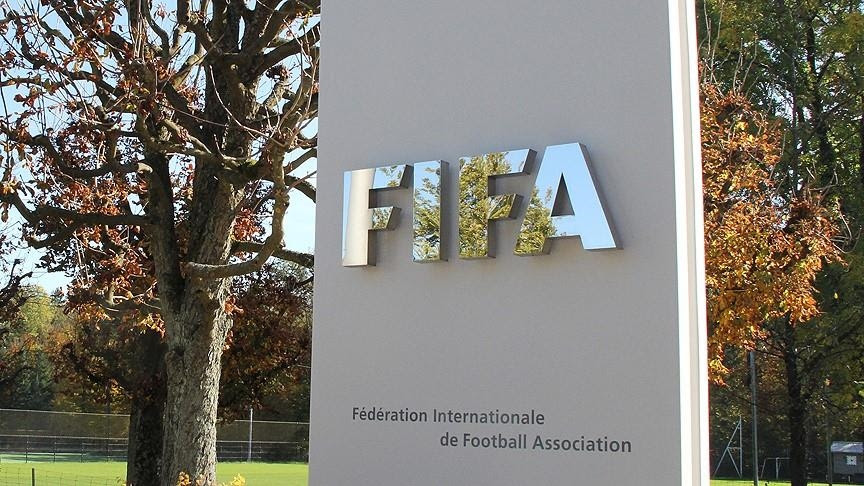FIFA supports the World Health Organization’s 16-day campaign to raise awareness of domestic violence The campaign kicks off today on the International Day for the Elimination of Violence against Women and will run until Human Rights Day on Friday, December 10.
“Violence is never an answer, especially in the home, which should be a safe environment for everyone, and especially for women and children,” said FIFA President Gianni Infantino. “FIFA has a statutory obligation to respect all internationally recognized human rights and, as an organization, must strive to promote the protection of these rights. The #SafeHome campaign is in its second year, and FIFA will continue to use the voice of soccer to amplify this message until these acts are no longer part of our society.”
“The COVID-19 pandemic has exacerbated many health challenges and inequities, including violence against women,” said WHO Director-General Dr. Tedros Adhanom Ghebreyesus. “We must all unite to end all forms of violence and discrimination. WHO is pleased to team up with FIFA and soccer stars around the world to help prevent violence against women and children, support survivors and make our societies safer and healthier for all.”
All WHO data, violence against women remains devastating and begins at an alarming age. In their lifetime, one in three women aged 15 and older, or about 736 million women, experience physical and/or sexual violence from an intimate partner or sexual violence from a non-partner – a figure that has remained virtually unchanged over the past decade.
This violence starts early: One in four young women (ages 15 to 24) who have been in a relationship will have experienced intimate partner violence by the time they reach their mid-20s. The data suggest that women’s exposure to violence likely increased during the COVID-19 pandemic due to closures and disruptions in critical support services.
Violence – in all its forms – can impact a person’s health and well-being across the lifespan. It is associated with increased risk of injury, depression, anxiety disorders, unintended pregnancy, sexually transmitted infections including HIV, and many other health problems, and carries enormous costs to households, communities, and societies as a whole.
The five-part #SafeHome video campaign, which supports WHO’s message to end violence against women and children, is being released in seven languages over the next 16 days. The campaign raises awareness of the risks and highlights steps that can be taken to prevent and mitigate those risks through counselling and support for survivors. It also includes information on the risks faced by perpetrators of violence and calls on governments to redouble their efforts to support those in vulnerable situations.
#SafeHome features messages from 23 current and former footballers, many of whom have already expressed their condemnation of violence against women and children.
/origin-imgresizer.eurosport.com/2010/06/18/617747-22055675-2560-1440.jpg) David James
David James
Emmanuel Amuneke (NGA) Álvaro Arbeloa (ESP) Rosana Augusto (POR)
Vítor Baía (POR) Diego Benaglio (SUI) Sarah Essam (EGY)
Khalilou Fadiga (SEN) Matthias Ginter (GER) David James (ENG)
Annike Krahn (GER) Rabah Madjer (ALG) Marco Materazzi (ITA)
Milagros Menéndez (ARG) Lúcia Moçambique (MOZ) Geremi Njitap (CMR)
Asisat Oshoala (NGA) Noemi Pascotto (ITA) Graham Potter (ENG)
Mikaël Silvestre (FRA) Kelly Smith (ENG) Óliver Torres (ESP)
Clémentine Touré (CIV) Abel Xavier (POR)
These players will post their contribution to #SafeHome on their channels, while the campaign will also be featured on various FIFA and WHO digital platforms. Graphic toolkits are also being provided to FIFA’s 211 member associations to further amplify the messages in their territories.
“Once again, we call on FIFA member associations to proactively publish details of national or local helplines and support services that can help anyone who feels threatened by violence,” added the FIFA President. “In this regard, we also call on our members to review their own protection measures using the FIFA Guardians toolkit, to ensure that soccer is fun and safe for all, especially for the youngest members of the soccer community. This is what FIFA stands for, and this is what soccer as a whole should stand for.
The World Health Organization (WHO) and FIFA signed a four-year collaboration in 2019 to promote healthy lifestyles through soccer on a global scale. More information on the WHO-FIFA MOU can be found here, while previous campaigns include #ReachOut ahead of World Mental Health Day, Pass the Message to Drive Out Coronavirus and #BeActive on the UN International Day of Sport for Development and Peace.



Comment here